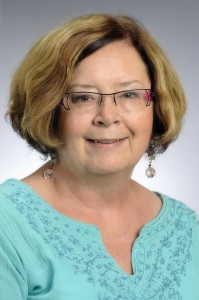Dr. Pauline Minevich is an Associate Professor in the Department of Music, where she has taught since 2000. She holds an M.Mus in Clarinet Literature and Performance and a PhD in Systematic Musicology, both from the University of Western Ontario. As a chamber music player, she has performed across Western Europe, South and Central America, and Russia. Recent publications include a book she co-edited with Dr. Ellen Waterman (Memorial University): Art of Immersive Soundscapes (University of Regina Press, 2013). Eighteenth-century English audiences relished a wide range of music in the London playhouses. This study reconstructs a newly-discovered score of a rare English opera, The Fairies. London was known for lavish productions of Italian operas, but in mid-century, as tensions mounted across Europe, there was a concerted effort to promote opera in English by English composers. The Fairies is a prime example, and I am preparing a new edition of it with extensive commentary on the social and political context of English opera of the period. HRI PM HRI PM HRI PM HRI PM HRI PM Dr. Pauline Minevich
Dr. Pauline MinevichProject: Performing Empire: A Reconstruction and Deconstruction of The Fairies (1755), an English Opera by John Christopher Smith and David Garrick
Conversation
What motivated or sparked you to become a humanities researcher/scholar?
Like most scholars, I strive for a deeper understanding of the world around me, and for me, that understanding has developed through creative performance in music, and the study of music in social context.
How did you come to your research focus/disciplinary specialization?
Back in high school, my passions were music, history, and English literature, and after a lengthy career as a professional clarinetist, I was drawn back to academia to pursue them further. My doctoral dissertation was on music at the Theatre Royal, Drury Lane, during David Garrick’s 30 years of management (1747-1776), so it situates music in the context of history and literature.
What future plans do you have for your research and its direction?
As a musicologist, I’m always thinking about music and its cultural context and impact, both in the past and in today’s world. This particular project is about an eighteenth-century English opera that was written just before the outbreak of the Seven Years’ War, and how the opera and its casting reflect political tensions at the time in England. In our contemporary context, I’m very interested in the impact of globalization on traditional musics across the world. I have also studied soundscapes and the ways in which they reflect Canadian identity.
Which humanities scholar or creative practitioner inspires you and why?
The great cellist Yo Yo Ma is a huge inspiration for me. He is classically trained, but he believes, as I do, that music can communicate ideas and understanding across cultures and throughout the world. He is the founder and director of the Silk Road Project, which includes musicians and composers from music cultures as diverse as China, India, the Middle East, and Africa. Working as a collective, they draw on many cultural heritages to create new music reflects today’s global society in all its diversity.
What are two things about your humanities research that make them relevant to other researchers, scholars or students? To the broader public?
It’s easy for the general public to perceive classical music as elitist. My work explores the social and political context of music to reveal what it tells us about society past and present, and that’s always relevant.
Profiles: Humanities Research Fellow, Dr. Pauline Minevich was last modified: January 21st, 2017 by
Categories:
